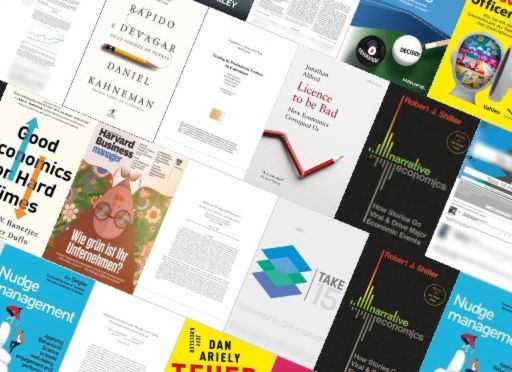Economist Jonathan Aldred journeys through the history of economic theory to argue for a more humane, generous and collaborative society.

Money Shouldn’t Talk
The director of studies in economics at Emmanuel College, Jonathan Aldred is also a lecturer at the University of Cambridge. His economics expertise and heartfelt belief in a collaborative society – along with his dry sense of humor – shine throughout this individualistic take on economic theory.
Neoliberal economics has received a great deal of criticism lately, and perhaps deservedly so. But knee-jerk accusations usually prove ill-informed and ideological. Aldred takes another tack by examining how economic theories and mind-sets have gone beyond the dismal science to infiltrate social behavior and attitudes. He highlights the complex relationship between society and often poorly understood economic ideas.
To give readers a proper sense of how unusual Aldred’s approach is, consider that the The Daily Telegraph called this a “fascinating assault on modern economic orthodoxy…a call for us all to put aside our prejudices – some of which have been invented for us, decades ago – and ask, is this what we need? Is it even what we really want?” The Times Literary Supplement wrote, “An entertaining, wide-ranging and often challenging argument. Aldred writes exceptionally well.”
Neoliberal Economic Ideas
Aldred’s thesis holds that prevailing economic theories and attitudes dominate political questions and encourage selfishness. He laments that people now denigrate cooperation as inconsequential and that corporations justify negligent actions under the creed of maximizing profit.
We did not adopt our present way of thinking through deliberate choice. But it didn’t happen by chance. It wasn’t a conspiracy, but from some angles it looks like one.Jonathan Aldred
These views, the author insists, contradict earlier, long-held individual values and social responsibilities.
Game Theory
Aldred tells how game theory and its application to economics came from math geniuses, notably John von Neumann, the inspiration for the title character of the film Dr. Strangelove, and John Nash, protagonist of A Beautiful Mind.
Aldred points out the weaknesses of game theory thinking: First, it assumes that “people are always selfish,” and second, it only looks at the consequences of isolated actions, whereas people’s moral and fairness concerns look backward and at the bigger picture, giving a context to their decisions.
Game theory’s essential assumption that people are best off being self-centered, Aldred believes, has spread throughout the general population. He feels that people now dismiss altruistic and cooperative behaviors as irrational.
Cynicism
Economist James Buchanan, Aldred relates, developed a theory in the 1950s that says that voters will vote only out of self-interest and that politicians want only votes – not to act to benefit the common good. Aldred believes this thinking fuels current cynical attitudes toward politics and politicians. This cynicism, Aldred notes, damages Western political systems and bolsters the idea that market mechanisms are superior to government processes.
Aldred posits that people’s tendency to act in their own interests rather than for the theoretical common good promotes the conclusion that human behavior is naturally competitive. It is this competitiveness that underlies the dynamic and defense of capitalism.
Aldred depicts this cynicism in the argument that, because prices rise and fall with demand, market transactions unveil true value. For the author, however, “price is a poor measure of value.”
Financial Incentives
Many free market economists, Aldred recounts, see incentives as ways to socially engineer human behavior. He offers the example of how a tax on plastic shopping bags can motivate people to embrace alternatives. This fuels the notion that everyone has their price.
Most economists see it [money] as interchangeable with all motivations, a neural common currency in terms of which all motivation can be expressed.Jonathan Aldred
Aldred feels this thinking crowds out intrinsic moral and cultural feelings of obligation and public spiritedness; the belief that everyone thinks only about money becomes self-fulfilling.
Homo Economicus
Aldred insists that people are not a species of homo economicus – always rational and predictable. They make more than economic choices; their lives and communities have more scope and depth than that.
If economics needs deflating to a more humble and modest position in our culture, then we need not wait for economists to let the air out. Ultimately, we have the power to put economics back in its proper place. We should not delay.Jonathan Aldred
Aldred holds that individuals’ choices – not external, immutable economic laws – shape economies.
Brilliance
Aldred is a brilliant, articulate writer, and he knows his field inside out. He strives to make economic theory, its discontents and its sociopolitical effects clear to lay readers, especially those with little or no grounding in economics. He succeeds to a shocking extent. By the end of the book, you may not be able to recall or distinguish among the variety of theories Aldred discusses, but you will gain remarkable insight into how these theories have altered society and perhaps even implanted ideas and values that you assume you generated yourself.
Aldred provides the means by which you can astutely doubt much political or economic rhetoric, and by which you can draw new conclusions for yourself. This book is neither liberal nor conservative, though it does find fault with economic views and policies that conservatives cherish. Aldred’s even-handed, dispassionate approach offers entirely new prisms through which to build your own views and opinions. Executives, students and anyone intrigued by the forces shaping today’s government and social policies will benefit greatly from Aldred’s wisdom.
Worthy parallel works that shed light on or provide contrast to Aldred’s thoughts include Capital and Ideology by Thomas Piketty, The Economists’ Hour by Binyamin Appelbaum, The Tyranny of Merit by Michael J. Sandel, and Good Economics for Hard Times by Abhijit V. Banerjee and Esther Duflo.






